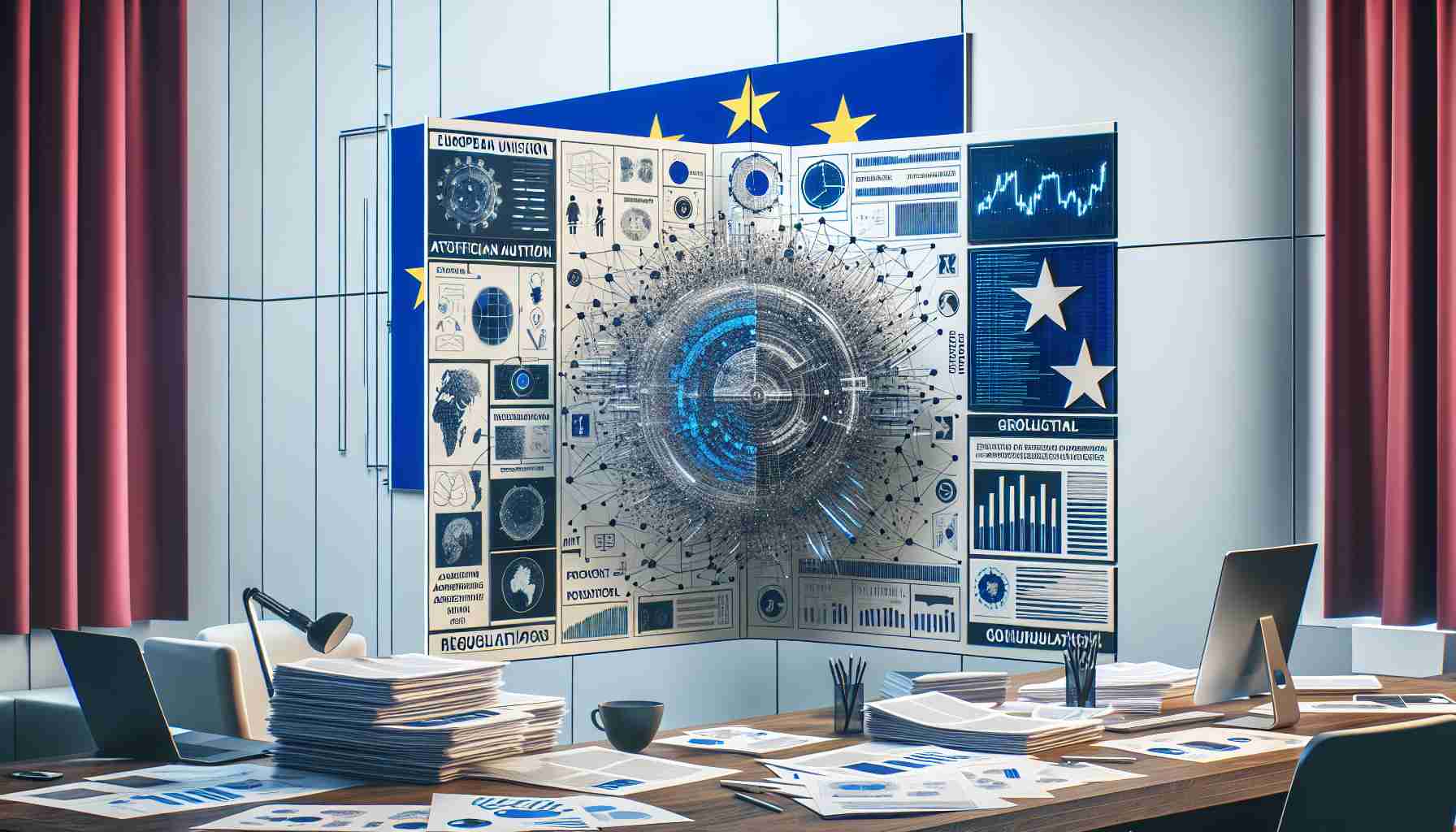In a landmark move, European Union lawmakers are poised to give final approval to the world’s first comprehensive set of artificial intelligence (AI) rules. The much-anticipated AI Act is expected to be officially enacted by May or June of this year, putting European countries at the forefront of global AI regulation. This groundbreaking legislation aims to address the challenges posed by the fast-developing technology while ensuring consumer safety and human-centric control.
Under the AI Act, a risk-based approach is adopted, categorizing AI applications into low-risk and high-risk systems. Low-risk systems, such as content recommendation algorithms or spam filters, will be subject to light regulations, mainly focusing on disclosing their use of AI. On the other hand, high-risk AI applications, including medical devices and critical infrastructure, will face stringent requirements, such as the use of high-quality data and clear user information.
The AI Act also addresses the emergence of generative AI models, which can produce lifelike responses, images, and more. Developers of general-purpose AI models, such as OpenAI’s ChatGPT or Google’s Gemini, will be obligated to provide detailed summaries of the training data used, ensuring transparency and compliance with EU copyright law. Moreover, AI-generated deepfake content will be required to be clearly labeled as artificially manipulated.
Europe’s leadership in AI regulation is likely to influence global standards and practices. While the United States has recently taken steps toward AI regulation with President Joe Biden’s executive order, European regulations are more comprehensive and could serve as a model for other governments. Countries like China, Brazil, and Japan, as well as international organizations like the United Nations and the Group of Seven, are also developing their own AI governance frameworks.
Once the AI Act becomes law, European member states will have six months to prohibit the use of AI systems deemed unacceptable, such as social scoring or certain types of surveillance. Regulations for general-purpose AI systems will come into effect one year after the law’s enactment. By mid-2026, all provisions, including those for high-risk systems, will be fully enforceable.
In terms of enforcement, each EU country will establish its own AI watchdog to handle complaints and ensure compliance with the regulations. Additionally, the European Commission will establish an AI Office responsible for supervision and enforcement of the law in relation to general-purpose AI systems.
With potential fines of up to €35 million ($38 million) or 7% of a company’s global revenue for violations, the AI Act sends a clear message about Europe’s commitment to responsible AI development and usage. By striking a balance between innovation and protection, the regulations aim to harness the benefits of AI while safeguarding human rights, privacy, and societal well-being.
FAQ
What is the AI Act?
The AI Act is a comprehensive set of regulations enacted by the European Union to govern the development and usage of artificial intelligence within its member countries. It aims to ensure consumer safety, protect human rights, and provide a framework for responsible AI deployment.
How does the AI Act categorize AI applications?
The AI Act adopts a risk-based approach, categorizing AI applications into low-risk and high-risk systems. Low-risk systems, such as content recommendation algorithms, will face light regulations, while high-risk systems, including medical devices and critical infrastructure, will be subject to stringent requirements.
What are the provisions for generative AI models?
Generative AI models, which can produce lifelike responses and content, will require developers to provide detailed summaries of the training data used. Additionally, any AI-generated deepfake content must be clearly labeled as artificially manipulated.
Will Europe’s AI regulations influence other countries?
Yes, Europe’s leadership in AI regulation is likely to have a significant impact on global standards and practices. Other countries, including the United States, China, and Brazil, are also developing their own AI governance frameworks.
How will the AI Act be enforced?
Each European Union member country will establish its own AI watchdog to handle complaints and ensure compliance with the regulations. The European Commission will also establish an AI Office to supervise and enforce the law for general-purpose AI systems.
What are the penalties for violating the AI Act?
Violations of the AI Act could result in fines of up to €35 million ($38 million) or 7% of a company’s global revenue, emphasizing the seriousness of adhering to the regulations.
Definitions:
– AI: Artificial intelligence refers to the development and application of computer systems that are capable of performing tasks that would typically require human intelligence.
– AI Act: The AI Act is a comprehensive set of regulations enacted by the European Union to govern the development and usage of artificial intelligence within its member countries. It aims to ensure consumer safety, protect human rights, and provide a framework for responsible AI deployment.
– Generative AI models: Generative AI models are artificial intelligence models that are designed to generate new content, such as lifelike responses, images, and more.
– Deepfake: Deepfake refers to the use of artificial intelligence to manipulate or generate media, typically in the form of manipulated videos or images that appear realistic but are actually fabricated.
Related links:
– AI Act – European Commission Press Release
– Difference Between Artificial Intelligence and Machine Learning – Forbes
– Difference Between Weak and Strong AI – BBVA OpenMind
– European Union Artificial Intelligence Act – Lexology
The source of the article is from the blog toumai.es

